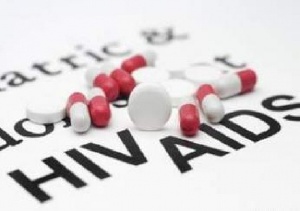Ghana is in the process of finalising a new National Strategic Plan (NSP) on HIV for the period 2016-2020 after she recently ended the implementation of the 2011-2015 plan.
The NSP 2016-2020 would seek to provide guidance and direction, help mobilize action and focus on resources.
Dr Angela El-Adas, the Director General of the Ghana AIDS Commission (GAC), made this known in a speech read on her at a stakeholders’ consultation meeting on; “The First 90 Campaign” in Wa.
He said NSP 2016-2020 was aligned with the 90-90-90 fast-track targets set by the UNAIDS as long term goal to ending HIV/AIDS by 2030.
The short term targets, popularly called the 90-90-90 fast track targets, means that 90 per cent of all People Living with HIV would know their status; 90 of all people diagnosed with HIV infection would receive sustained Antiretroviral Therapy (ART), while 90 per cent of all people receiving ART would have viral suppression.
Explaining what global consensus on ending HIV/AIDS by 2030 meant, Dr El-Adas said HIV/AIDS would no longer be a threat to human life by the set date.
Though there would be new cases of HIV, the virus would no longer be a public health danger, she said.
She said in order to achieve this goal short term targets had been set for 2020 to allow countries to track progress towards achieving the global long term goal of ending the HIV/AIDS epidemic by 2030.
Dr El-Adas said the 90-90-90 target reflected essential paradigm shift in the approach to treatment scale-up, adding that those new targets addressed progress along the HIV cascade of engagement in care and measuring the degree to which programmes were meeting their ultimate goal of viral suppression.
She said the 90-90-90 target emphasised speed in scale-up and early initiation of HIV treatment in a manner consistent with human rights.
She said the crosscutting nature of the HIV epidemic in the Sustainable Development Goals (SDGs) could not be over-emphasised, saying they must begin to think not only in terms of HIV but mainstreaming HIV into other developmental agendas.
“This is the only way that will see us achieve more with fewer resources and eliminate AIDS in Ghana,” Dr El-Adas said.
In this regard, Ghana had initiated a national campaign to achieve the first 90 Fast Track target because of its link to the achievement of the other two 90s, she said.
She said the first 90 campaign was designed to increase awareness about available HIV testing services and encourage Ghanaians to test and know their status.
It is also to boost HIV testing rates as it was generally low in the country, reduce stigma and discrimination towards HIV testing, and improve accountability on HIV testing services.
Dr El-Adas said the objectives of the stakeholders meeting were to serve as a platform of exchange and dialogue for developing policy and institutional measures to attain the first 90 target and provide better understanding about its status.
Other objectives are to discuss and identify funding opportunities and challenges associated with promoting HIV testing and counselling and provide space to articulate and listen to the analysis and proposals of stakeholders on how to achieve the first 90 target to support the national response.
Health News of Sunday, 15 May 2016
Source: GNA

















